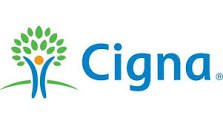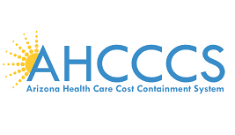Understanding TMS Therapy
Transcranial Magnetic Stimulation (TMS) therapy, also termed transcranial magnetic stimulation, represents a groundbreaking method for treating depression. This non-invasive therapy utilizes magnetic fields to stimulate
the brain, providing a safe and effective alternative for individuals struggling with treatment-resistant depression. Unlike traditional antidepressants, TMS therapy targets the root cause of depressive disorders through precise brain stimulation. For those seeking hope and effective antidepressant alternatives, TMS therapy represents a promising option that may lead to improved quality of life.
TMS therapy in Chandler, AZ
Accessible TMS Therapy in Chandler, AZ
- Chandler, AZ, is a hub for accessible TMS therapy, providing individuals with convenient access to innovative depression treatment options.
- The city boasts multiple TMS therapy centers that cater to the needs of patients seeking non-invasive brain stimulation therapy.
Benefits of TMS Therapy in Chandler, AZ
- Patients in Chandler, AZ, have the opportunity to experience the numerous benefits of TMS therapy for managing depression effectively.
- The availability of non-invasive brain stimulation therapy in Chandler offers a safe and reliable alternative to traditional antidepressants, providing hope for those struggling with treatment-resistant depression.
Exploring Treatment-Resistant Depression
Treatment-resistant depression, also known as treatment-refractory depression, presents a formidable challenge for individuals battling this condition. Unlike typical depression that responds to traditional antidepressants, treatment-resistant depression does not yield to these conventional treatments. This can lead to prolonged suffering and a diminished quality of life for those affected.
Understanding Treatment-Resistant Depression
- Persistent symptoms characterize resistant depression despite undergoing multiple rounds of standard antidepressant therapies.
- Individuals with treatment-refractory depression often experience prolonged periods of despair and hopelessness, impacting their daily functioning and overall well-being.
Challenges of Traditional Antidepressants
Traditional antidepressants pose significant limitations when it comes to addressing the symptoms of treatment-resistant depression. The effectiveness of these medications is notably reduced in individuals with treatment-refractory depression. Moreover, the side effects and tolerability issues associated with traditional antidepressants can further exacerbate the challenges faced by those with resistant depression.
The Effectiveness of TMS Therapy
Evaluating the Effectiveness of TMS Therapy
When considering the effectiveness of TMS therapy, it’s essential to recognize its positive impact on individuals with treatment-resistant depression. Research has consistently shown that transcranial magnetic stimulation is particularly effective in alleviating depressive symptoms, offering new hope for those who have not responded to traditional treatments. The non-invasive nature of this brain stimulation therapy makes it an appealing choice for individuals looking for alternatives to conventional antidepressants. Studies have demonstrated notable improvements in mood and overall well-being among patients undergoing TMS therapy, highlighting its potential as a transformative approach to managing depression.
Comparing TMS Therapy to Traditional Antidepressants
In contrast to traditional antidepressants, TMS therapy stands out as a non-invasive alternative for individuals with treatment-resistant depression. While conventional medications may have limited efficacy and unwanted side effects, TMS therapy offers a safer, more targeted intervention. This comparison underscores the potential of TMS therapy to address the unmet needs of individuals struggling with treatment-resistant depression, providing a ray of hope where traditional treatments have fallen short.
Eligibility for TMS Therapy
Determining Eligibility for TMS Therapy
When determining eligibility for TMS therapy, individuals undergo a comprehensive assessment to evaluate their suitability for the treatment. This assessment involves a thorough review of their medical history, current symptoms, and previous responses to traditional antidepressant therapies. Candidates with a diagnosis of treatment-resistant depression and those who have not experienced significant improvement with conventional medications are often considered eligible for TMS therapy. Additionally, healthcare providers may consider other factors, such as overall health status and potential contraindications, before recommending transcranial magnetic stimulation as a viable treatment option.
Safety and Considerations for TMS Therapy
Safety is a paramount consideration in the administration of TMS therapy. For eligible candidates, this non-invasive brain stimulation therapy is generally well-tolerated, with minimal side effects that are typically mild and transient. Unlike traditional antidepressants, TMS therapy does not produce systemic effects on the body, further contributing to its favorable safety profile. Healthcare providers work closely with individuals considering TMS therapy to carefully assess the potential benefits and risks associated with the treatment, ensuring that it aligns with their unique needs and circumstances.
Embracing TMS Therapy for Depression
The Role of TMS Therapy in Future Depression Treatment
TMS therapy is poised to play a pivotal role in the future of depression treatment, particularly for individuals grappling with treatment-resistant depression. As awareness and acceptance of TMS therapy continue to grow, it is increasingly evident that this non-invasive approach has the potential to revolutionize how depression is managed. The precision and effectiveness of TMS therapy offer new hope for those who have not found relief through traditional treatments. With ongoing advancements in technology and research, TMS therapy is anticipated to emerge as a cornerstone in the comprehensive landscape of depression treatment, providing individuals with a promising alternative to conventional methods.
Empowering Individuals Through TMS Therapy
The impact of TMS therapy on individuals with treatment-resistant depression cannot be overstated. By offering a non-invasive and effective treatment option, TMS therapy empowers individuals to reclaim control over their mental well-being. The positive transformations experienced by those undergoing TMS therapy underscore the importance of embracing innovative approaches to depression treatment. As awareness of the potential benefits of TMS therapy expands, there’s a rising feeling of empowerment and optimism regarding the future of managing depressive disorders.
Conclusion
In conclusion, TMS therapy stands as a beacon of hope for individuals grappling with treatment-resistant depression. The remarkable effectiveness and safety of this innovative therapy make it a promising alternative for those seeking progressive approaches to depression treatment. Embracing TMS therapy has the potential to bring about positive outcomes and significantly enhance the quality of life for individuals contending with treatment-resistant depression. By offering a non-invasive and targeted intervention, TMS therapy represents a transformative path toward managing depressive disorders effectively.
CALL US DIRECTLY
480-252-5152
3377 S Price Road, Suite 103
Chandler, AZ 85248
Appointment@sfsaz.care
https://www.sfsaz.care/











